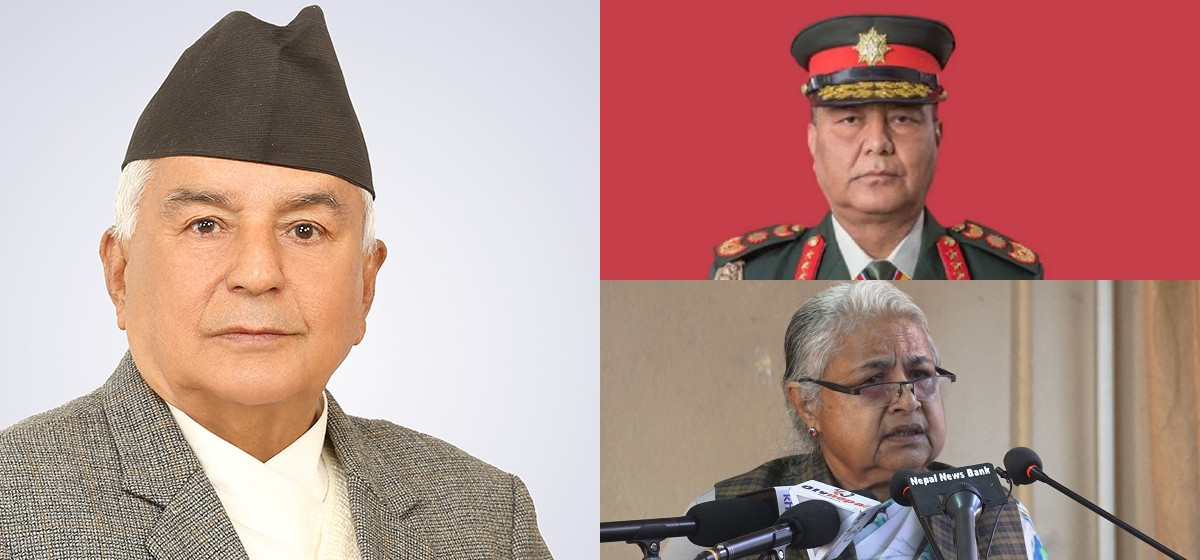KATHMANDU, Sept 11: Following the Gen Z youths’ decision to propose former Chief Justice (CJ) Sushila Karki as the interim leader of the government, preparations are underway for a tripartite meeting between the Nepal Army (NA) Chief, President Ram Chandra Paudel and Karki at the Army headquarters.
The meeting is expected to finalize her leadership.
The proposal emerged through various Gen Z group chats and channels, which gathered live opinions from both inside and outside the country on Wednesday.
Tripartite meeting underway at Baluwatar

Earlier, along with Karki, they had also considered Kathmandu Metropolitan City Mayor Balendra Shah (Balen), independent election contender Sagar Dhakal, and former Nepal Electricity Authority Managing Director Kulman Ghising. However, among these names, Karki emerged as the strongest candidate.
They said her legal background, political insight, and maturity, along with her impartial and balanced role during her tenure as Chief Justice, make her their preferred choice.
The Gen Z youths, who began their movement against corruption and for good governance and reached the point of toppling the government, are actively seeking to form a new government and restore peace and order.
Who is Sushila Karki?
Sushila Karki is Nepal’s first female Chief Justice of the Supreme Court. She served from 2073 to 2074 BS. Born in 2009 BS in Shankhapur, Biratnagar, Morang, Karki has close ties with the family of BP Koirala. Her husband, Durga Subedi, is a democratic fighter.
Karki earned her bachelor’s degree from Mahendra Morang Campus in 2028 BS and a master’s in Political Science from Banaras Hindu University in 2031 BS. She later received a law degree from Tribhuvan University in 2034 BS. She taught at Mahendra Multiple Campus, Dharan, between 2042 BS and 2046 BS. She began practicing law in 2035 BS and also served as the president of the Biratnagar Appellate Court Bar Association.
In 2061 BS, she became a Senior Advocate, and in 2065 BS, she was appointed as an ad-hoc justice of the Supreme Court before becoming a permanent justice in 2067 BS. In 2073 BS, she was appointed Chief Justice, where she made landmark rulings, including the dismissal of Lokman Singh Karki as Chief Commissioner of the Commission for the Investigation of Abuse of Authority (CIAA), and issued verdicts in several high-profile corruption cases.




































